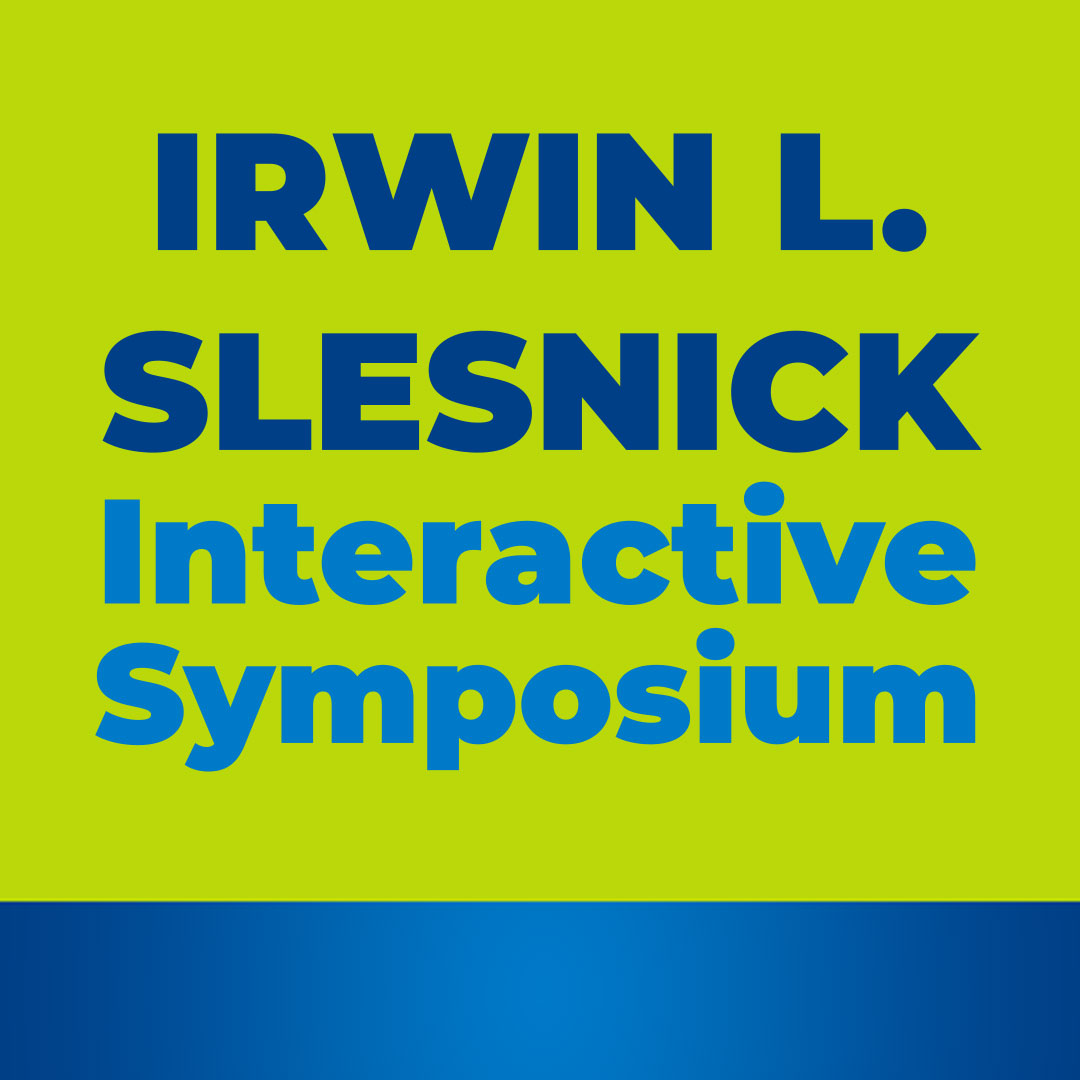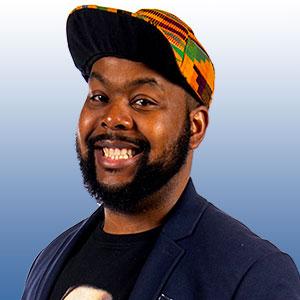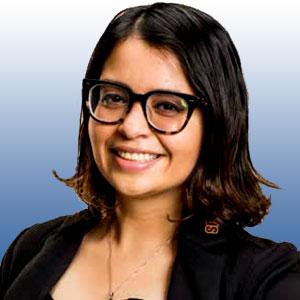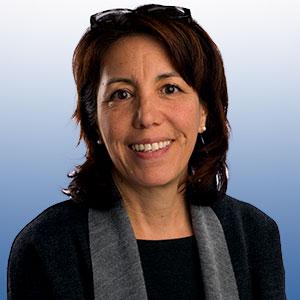Annual Irwin L. Slesnick Interactive Symposium

SYMPOSIUM SCHEDULE
Thursday, May 5, 2022
4:00-5:30 p.m.
Interactive Keynote
"Critical-Cultural Boundaries to Inclusive STEM Teaching"
Terrell R. Morton, Ph.D.
Friday, MAY 6, 2022
12:00-1:00 p.m.
In Person Lunch with Speakers
1:00-2:30 p.m.
Interactive Speaker Session
"Beyond Western Science: Acknowledging Indigenous Science"
Jessica Hernandez, Ph.D.
3:00-4:30 p.m.
Interactive Keynote
"What Does Science Have to Do With Race and Racism? Curricular Approaches to Anti-Racist Science Teaching"
Jeanne Chowning, Ph.D.
4:30-6:00 p.m.
In Person Reception
PRICE
Free
Brought to you by:
• Irwin L. Slesnick Symposium
• Science Math and Technology Education
• WWU Alumni Association
Please join us for the Annual Irwin L. Slesnick Interactive Symposium. This year, we are excited to welcome our guests to Western's campus and virtually for those unable to make it to campus. We have two days filled with keynote talks, workshops, lunch, and a reception. We hope you will join us!
Thursday, May 5, 2022
4:00-5:30 p.m.
SMATE Learning Resource Center and Online/Zoom
Interactive Keynote
"Critical-Cultural Boundaries to Inclusive STEM Teaching"
Terrell R. Morton, Ph.D.
Many educators who to seek to promote inclusion within their teaching and mentoring practices often engage good instructional strategies absent from a pedagogical framework. Pedagogical frameworks provide a theoretically grounded, organizational structure to teaching that anchor instructional strategies in a set of beliefs, values, and norms about the teaching and learning process. In this presentation we will discuss the importance of using critical, cultural frameworks as conceptual boundaries for fostering inclusion in STEM. We will examine why these frameworks are necessary, review a few frameworks and their core components, and discuss what these approaches require of the educator for adequate implementation.
Friday, May 6, 2022
12:00-1:00 p.m.
SMATE Learning Resource Center
In Person Lunch
With speakers/round table discussions on EID and their work
1:00-2:30 p.m.
SMATE Learning Resource Center and Online/Zoom
Interactive Speaker Session
"Beyond Western Science: Acknowledging Indigenous Science"
Jessica Hernandez, Ph.D.
3:00-4:30 p.m.
SMATE Learning Resource Center and Online/Zoom
Interactive Keynote
"What Does Science Have to Do With Race and Racism? Curricular Approaches to Anti-Racist Science Teaching"
Jeanne Chowning, Ph.D.
What is race? What does science have to do with race and racism? In this interactive session, we will examine curricular approaches to anti-racist science teaching, highlighting resources from Fred Hutchinson Cancer Center as well as others. These resources address the intersections of racism, the construct of race, genetic variation, and the history of science in order to explore implications for science classrooms. We will particularly debunk the idea of racial genetic essentialism –the idea that discrete biological races exist, and genes confer on those race distinct and immutable characteristics, abilities, and skills. Such ideas are at the foundation of racial ideologies underlying the oppression and exploitation of certain racial groups and the concentration of privileges and advantages in others. We’ll discuss how race is an important part of identity and lived experience, a socio-political construct with deep implications, but a poor proxy for ancestry and evolutionary history. While race is not a genetically meaningful category, it can still impact biology and health through the enactment of racist policies and practices. We will also address how teachers of subjects other than biology can engage with these ideas.
4:30-6:00 p.m.
SMATE Learning Resource Center
In Person Reception

Dr. Terrell R. Morton
Keynote Speaker
Dr. Terrell R. Morton (@DrTRMorton) is an Assistant Professor of Identity and Justice in STEM Education at the University of Missouri-Columbia. He is an alumnus of North Carolina A&T State University (B.S. Chemistry), University of Miami (MS Neuroscience), and UNC Chapel Hill (Ph.D. Education - Learning Sciences and Psychological Studies). Dr. Morton identifies as a Scholar-Activist! His work strives to transform the positioning and understanding of Blackness in mainstream education, specifically STEM, seeking justice and joy for Black women, Black students, and other minoritized individuals given the social-cultural-political-historical positioning of their identities. He is an accomplished, emerging scholar, having published in an array of academic journals, obtained 5.43 million dollars in external grant funding, and given several global and national talks. Through every endeavor, he strives to “walk it like I talk it.”

Dr. Jessica Hernandez
Dr. Jessica Hernandez (Maya Ch’orti’ & Binnizá) is a transnational Indigenous scholar, scientist, and community advocate based in the Pacific Northwest. She has an interdisciplinary academic background ranging from marine sciences to forestry. Her work is grounded in her Indigenous cultures and ways of knowing. She advocates for climate, energy, and environmental justice through her scientific and community work and strongly believes that Indigenous sciences can heal our Indigenous lands.

Dr. Jeanne Ting Chowning
Dr. Jeanne Ting Chowning is the Senior Director of Science Education and the Interim Director of the Office of Education and Training at the Fred Hutchinson Cancer Research Center in Seattle. For over 25 years, she has focused her professional efforts on improving science education and promoting equity for students from marginalized and systemically excluded groups. In addition to her strategic role in providing leadership to the high school and undergraduate science outreach and internship programs at Fred Hutch, she also directs the teacher professional development program (the Science Education Partnership, or SEP). She is the Principal Investigator on two federal science education grants centered on teacher professional learning, curriculum development, and student research experiences.
Questions and Accommodations
Contact the WWU Alumni Association for this event. Feel free to call at (360) 650-3353 or email at alumni@wwu.edu if you have any questions or comments.
Auto-captions will be available for the virtual portions of this event.
Advance notice for disability accommodations and special needs is greatly appreciated. Please indicate your special needs on the registration form.